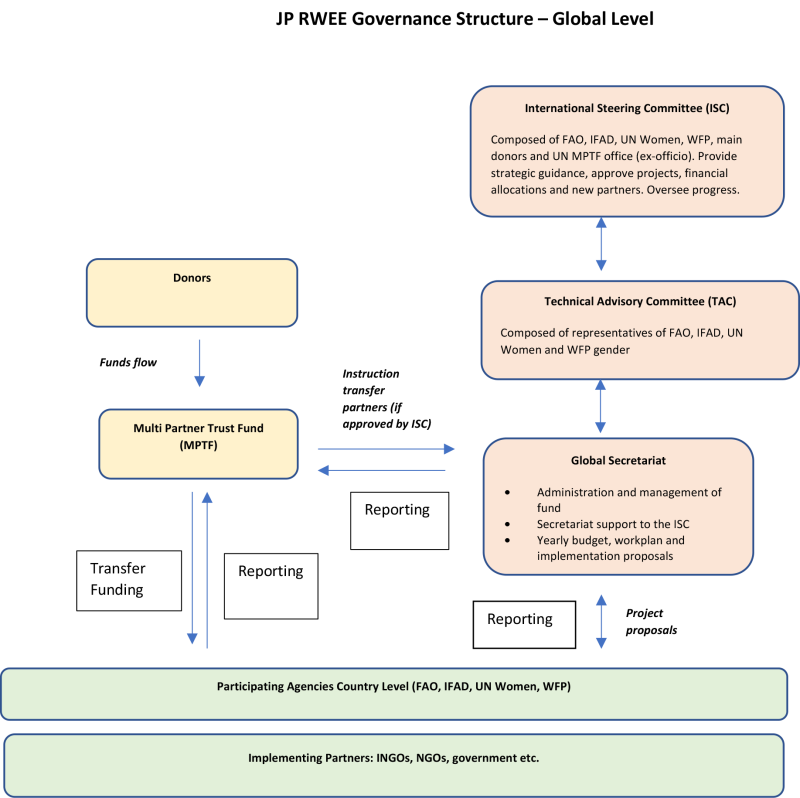GovernanceGovernance arrangements
International Steering Committee
Oversees the activities of the Fund and decides on its strategic direction; oversees the allocation of funds and sets priorities regarding implementation modalities, results-based reporting, and donor visibility. The Committee is composed of senior officials from participating UN organizations, representatives of each contributing donor to the RWEE Fund and representatives from national governments involved in the programme.
Technical Advisory Committee
Provides technical support to steering committees and Participating UN Organizations. It is comprised of technical/advisor level representatives of FAO, IFAD, UN Women and WFP and contributes to ensuring harmonization of programme approaches and implementation.
National Steering Committee
Exists in all programme countries and are co-chaired by designated government officials and the leading stakeholder organization. Members include a representative from all participating entities, a representative from the ministries of agriculture/rural development, gender/women’s affairs, economy and finance, community/local development, youth and environment, and from main donors.
Global Secretariat
A Global Secretariat is hosted by WFP and is responsible for the overall coordination of the programme, the implementation of M&E systems, the consolidation of narrative reports, communications, knowledge management and resource mobilization.
National Steering Committee
Exists in all programme countries and are co-chaired by designated government officials and the leading stakeholder organization. Members include a representative from all participating entities, a representative from the ministries of agriculture/rural development and other ministries as determined at country level (e.g. gender/women’s affairs). The committee oversees the allocation of ISC approved funds and ensures that the programme is line with national priorities.
Programme Management Unit
At country level, a Programme Management Unit (PMU) is hosted by the lead agency and staffed by a National Coordinator and MEAL Coordinator. The PMU is responsible for overall programme coordination and implementation at country level, ensuring strong coordination mechanisms are in place and that synergies are built between the agencies.
Administrative Agent
Participating Organizations receive funds through the Administrative Agent, the Multi-Partner Trust Fund Office. The Administrative Agent is responsible for the receipt, administration and management of contributions from donors, disbursement of funds to Participating Organizations, and dissemination of progress reports to donors.





